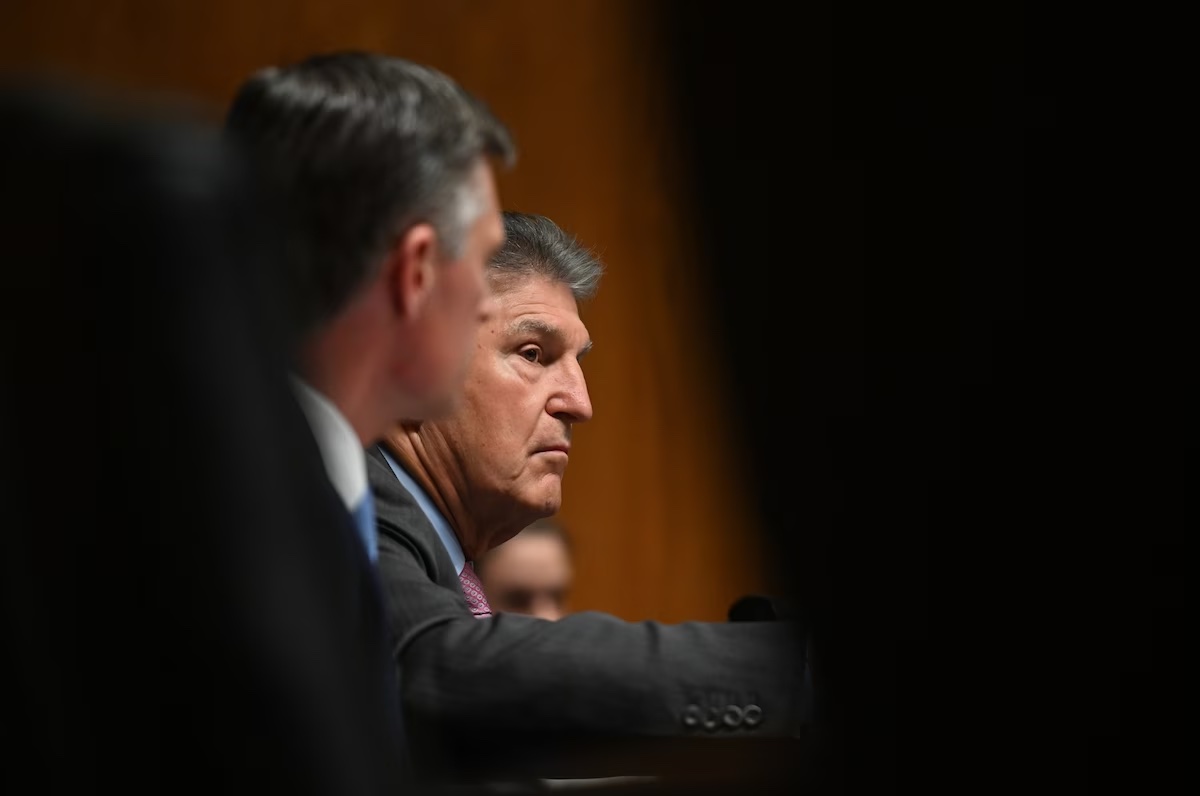Lawmakers draw red lines on possible permitting deals
from WaPo
Maxine Joselow | March 23, 2023
The House is expected to pass a sweeping Republican energy package next week along party lines. But its elements will be dead on arrival in the Democratic-controlled Senate — with one key exception.
In particular, Democratic senators will probably seek a bipartisan compromise on the language aimed at speeding up the permitting process for new energy projects, which many view as crucial to building clean-energy projects and fighting climate change.
But a compromise is far from guaranteed. And already, lawmakers in both parties are identifying red lines — proposals that would prevent them from supporting any eventual permitting deal.
So today, we’re looking at the red lines drawn by lawmakers on both sides of Capitol Hill — and how they could complicate permitting talks in the coming weeks:
Rep. Raúl M. Grijalva (Ariz.), top Democrat on the House Natural Resources Committee, said yesterday he wouldn’t vote for any permitting bill that undermines the National Environmental Policy Act, an environmental law that requires the federal government to analyze the environmental impact of a major project — and to seek public input — before approving it.
“How [Republicans] deal with permitting is to basically gut NEPA,” he told reporters. “And if there’s no public participation, then communities are hurt even more.”
The GOP energy package, known as H.R. 1, includes legislation from Rep. Garret Graves (R-La.) that seeks to limit litigation over energy projects under NEPA.
In contrast, Grijalva yesterday reintroduced a bill to increase public input in projects under NEPA. The legislation, named after the late congressman A. Donald McEachin (D-Va.), would vastly expand the ability of people affected by the pollution of a nearby project to reject it during the permitting process.
If several other Democrats share Grijalva’s position, a compromise could prove elusive. However, some centrist Democrats such as Rep. Scott Peters (Calif.) have sought to convince their colleagues that amending NEPA is necessary for building more clean-energy projects, as we previously reported.
Schatz and transmission
Sen. Brian Schatz (D-Hawaii), one of the most vocal climate hawks in the Senate, has argued that a permitting bill should make it easier to build transmission lines that carry clean electricity across the country.
Yet the GOP energy package doesn’t include a proposal backed by Sen. Joe Manchin III (D-W.Va.) to give the Federal Energy Regulatory Commission more authority to site transmission lines.
Schatz said yesterday the issue is a dealbreaker for him.
“If there’s nothing on transmission, I’m out,” he told The Climate 202. “Transmission is the problem on the clean-energy side. So if we don’t change the statutes related to transmission, then there’s not much in it for clean tech.”
Notably, Democratic leadership shares Schatz’s stance: Senate Majority Leader Charles E. Schumer (D-N.Y.) recently argued that the GOP energy package includes “none of the important permitting reforms that would help bring transmission and clean energy online faster.”
Sen. Sheldon Whitehouse (D-R.I.), another vocal climate hawk, also introduced a bill yesterday that would empower FERC to ease the process of constructing long-range, interstate, high-voltage transmission lines.
In a statement, Whitehouse noted that without doubling the rate of building transmission lines, America could lose up to 80 percent of the emissions reductions from the Inflation Reduction Act, according to an analysis by Princeton University.
Armstrong and fossil fuels
Rep. Kelly Armstrong (R-N.D.), who represents the fifth-largest coal-producing state, told reporters Wednesday that he would object to any permitting deal that prioritizes renewable energy over fossil fuels.
“Anything that gives real primacy to one form of energy production at the detriment of the other would be something I would have a problem with,” he said.
Armstrong later clarified that by “the other,” he was referring to fossil fuels and nuclear energy, which he said “actually keep the lights on when the wind isn’t blowing.”
Many Republicans agree with Armstrong, as evidenced by the host of pro-fossil-fuel policies in H.R. 1, including proposals to reinstate suspended oil and gas lease sales and boost U.S. liquefied natural gas exports.
Of course, these provisions will be nonstarters for most Democrats, given warnings from top scientists about the need to rapidly phase out fossil fuels to avert the worst impacts of climate change.
Capito, Manchin and … optimism?
Despite these tensions, Sen. Shelley Moore Capito (R-W.Va.), a key negotiator on permitting, yesterday expressed optimism that a deal could be reached.
“What we need to do is look at H.R. 1 and see where we can find common ground,” Capito told The Climate 202. “That may be a rosy outlook, but I think there’s a desire for permitting reform on both sides.”
Capito added that she had had a “good” conversation about permitting yesterday with House Natural Resources Committee Chair Bruce Westerman (R-Ark.).
Sam Runyon, a spokeswoman for Manchin, also sounded an optimistic note.
“Senator Manchin is taking a close look at HR1 and is hopeful there might be a pathway to permitting legislation that could gain bipartisan support,” Runyon said in an email.
However, Sen. Shelley Moore Capito (W.Va.) said the agency should be able to handle its responsibilities with the nearly $41 billion it received from the new climate law, calling the request “mind-boggling in this time of fiscal restraint.”
Other GOP senators criticized recently proposed EPA regulations, with Sen. Pete Ricketts (Neb.) calling the agency’s new “Waters of the United States” rule “an expansion of executive power.”
Meanwhile, Sen. Kevin Cramer (N.D.) said he was worried that “the EPA is still presuming authority that it doesn’t have” after the Supreme Court limited the agency’s ability to regulate carbon emissions in West Virginia v. EPA, pointing to a provision in the Inflation Reduction Act that directs the EPA to significantly reduce states’ greenhouse gas pollution.


